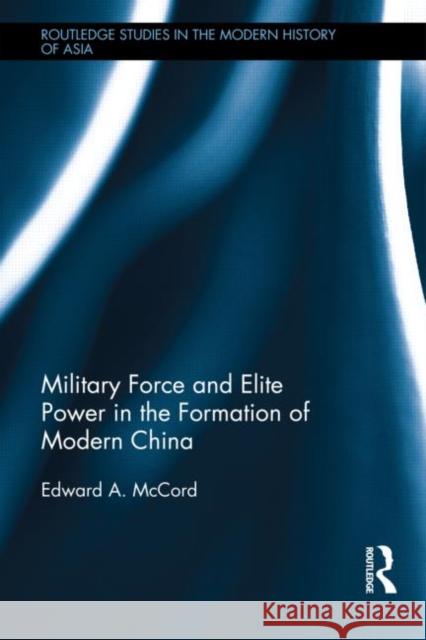Military Force and Elite Power in the Formation of Modern China » książka
Military Force and Elite Power in the Formation of Modern China
ISBN-13: 9780415732987 / Angielski / Twarda / 2014 / 186 str.
Military Force and Elite Power in the Formation of Modern China
ISBN-13: 9780415732987 / Angielski / Twarda / 2014 / 186 str.
(netto: 699,68 VAT: 5%)
Najniższa cena z 30 dni: 705,23
ok. 22 dni roboczych.
Darmowa dostawa!
The China we know today emerged at the end of a long period of internal rebellions, civil wars, foreign invasions, and revolutionary insurrections that stretched across the nineteenth century to the mid-point of the twentieth. This book explores one important consequence of this situation-the increased role of military force in the determination of elite social, political, and economic power, and presents fascinating case studies of the warlords, militia leaders, and military officers who benefited from this. Examining the intersection of military force and elite power in the formative years of modern Chinese history, this book highlights just how important military force was to elite power in nineteenth- and early twentieth-century China in a context of frequent warfare and political turmoil. It shows that the way in which military empowerment unfolded and who exactly was empowered, depended heavily on shifting military and political conditions, and each case confirms the extent to which military force emerged as a consistently significant determinant of elite power across this period. Indeed, the transformative effect of military force on social and political structures of power revealed by these studies sheds distinctive light on the prevalence, and wide-ranging impact, of military conflicts in this period. In turn, these studies also provide a particular perspective on the fluid boundaries of, as well as the constraints on, elite power in Chinese society in a time of intense social and political change. This book makes an important contribution to our understanding of the rise of modern China, and provides a keen insight into impact of war on the country, as such, it will be welcomed by students and scholars interested in Chinese history, Asian history, and military history more broadly.











